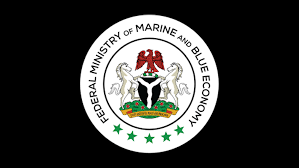By Atoyebi Nike
Stakeholders across Nigeria’s maritime and energy sectors say women must play a much larger role in the country’s ocean economy if the full benefits of the expanding blue economy are to be realised. They spoke in separate interviews in Lagos on Sunday, November 2, 2025.
Mrs Nneka Obianyor, Director of Reforms Coordination and Blue Economy at the Nigerian Maritime Administration and Safety Agency, said the global ocean economy generates more than 2.5 trillion dollars annually and remains a major engine for trade, innovation, and food security. She argued that Nigeria and other African nations stand to gain more by unlocking the capacity of women in the sector.
“The ocean economy drives growth across Africa, but to maximise its potential, we must unleash the talents of women,” Obianyor said.
She noted that maritime remains one of the world’s most male-dominated industries, with women accounting for fewer than two percent of seafarers and around ten percent of leadership roles. However, she highlighted improvements in parts of Nigeria and West Africa, where more women are now active in logistics, administration, academia, and policymaking. Female ship captains, port managers, and maritime lawyers are also emerging, though women remain scarce in seafaring, port operations, and technical fields.
Obianyor outlined several principles needed for gender inclusion, including leadership commitment, inclusive governance, resource access, capacity development, safety at the workplace, ocean-science education, gender-sensitive conservation, and community advocacy. A resilient and equitable ocean economy, she said, depends on removing systemic barriers that limit women’s participation.
Another maritime expert, Capt. Eddidong Akpanebe, identified gender stereotypes and cultural norms as major barriers that prevent women from entering and thriving in the industry. She stressed that Africa cannot afford to overlook half of its available talent.
Referring to the United Nations Women’s Empowerment Principles, Akpanebe said the framework offers guidance for gender equality across sectors but must be adapted to the realities of Africa’s maritime landscape. She proposed several actions, including integrating gender issues into blue economy policies, developing pipelines for female talent, and expanding access to capital for women-led enterprises.
Also speaking, Mrs Ruth Audu-Nungh, Chairperson for Downstream at Women in Energy, Oil and Gas, said both the ocean and energy sectors have historically been dominated by men. She emphasised the importance of mentorship and knowledge-sharing for young women entering the field, urging them to stay resilient, define clear career goals, and seek mentorship opportunities to excel in the blue economy.


